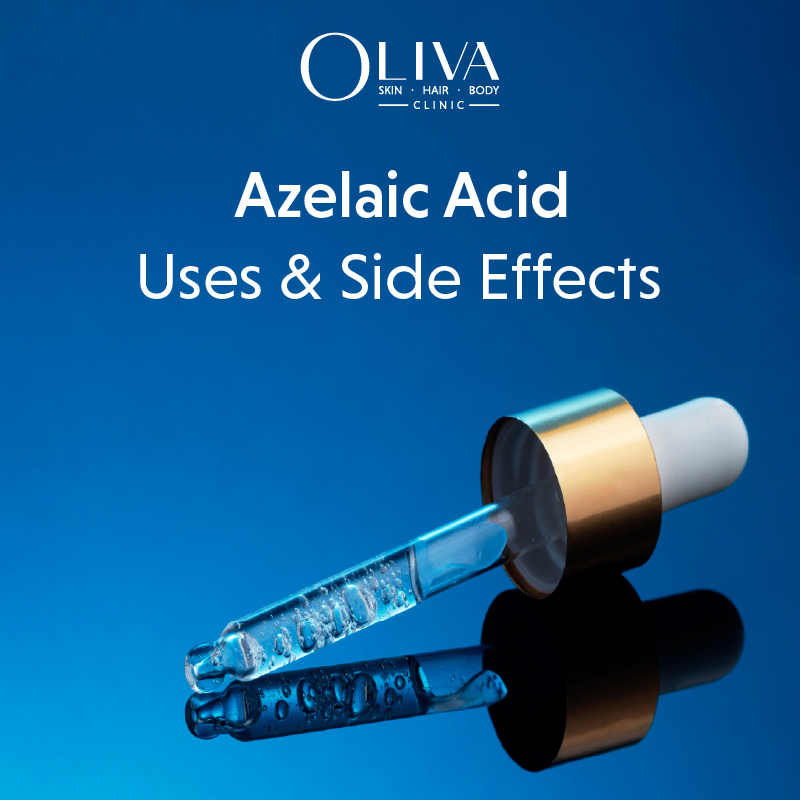How To Exfoliate Skin: Types, Best Methods, Tips & Benefits
Exfoliation plays a vital role in skincare routine. It removes dead, dull-looking skin to reveal a brighter, radiant, and softer complexion. If you are worried about skin concerns such as, uneven skin tone or texture, blocked pores, and want glowing skin, mastering exfoliation is key. This guide about how to exfoliate skin [1] will walk you through different manual exfoliation techniques, help you choose the right products for your skin type, and provide expert tips to seamlessly incorporate this refreshing practice into your daily routine.
In This Article

What Is Exfoliation?
Exfoliation [2] rejuvenates the skin by removing aged skin cells, allowing newer, cleaner skin to emerge. This deep cleansing prevents breakouts, unclogs pores, enhances skin’s natural glow and softens it. Regular exfoliation is much more than basic cleansing; it eliminates build-up that dulls your complexion and leaves your skin visibly brighter and healthier.
How To Know If You Need To Exfoliate Face?
Achieving healthy, radiant skin requires a consistent and appropriate skincare routine. Exfoliation is a simple yet impactful step that reveals a youthful, fresh, glowing skin layer. It is essential to know when your skin needs exfoliation. [3] Here are the key signs that you must watch out for:
- Dull Complexion: A build-up of dead skin cells creates a lacklustre appearance. Exfoliation removes this dull layer, restoring your skin’s natural glow and allowing it to breathe.
- Dry Skin: Dead skin cells block moisture absorption, making the skin rough and flaky. Exfoliation clears away these layers, creating a smoother surface that retains hydration.
- Excessive Oil And Clogged Pores: When oil and debris accumulate, pores become congested, leading to breakouts. Exfoliation removes excess sebum, unclogs pores, and balances oil production for a clearer complexion. It will also help you keep acne under control, which generally happens when hair follicles become clogged with oil, dead skin cells and bacteria.
- Hyperpigmentation Or Uneven Complexion: Dark spots and sun damage cause an uneven skin tone. Regular exfoliation helps fade pigmentation over time, promoting a more even complexion.
- Coarse And Uneven Textured Skin: Environmental pollutants and dead skin build-up lead to coarse, bumpy skin. Exfoliation smooths the surface by refining texture with physical or chemical exfoliants.
- No Skin Renewal: Dull skin results from a sluggish cell turnover process. Exfoliation accelerates renewal, restoring freshness and vibrancy. Incorporate exfoliation into your routine to maintain clear, smooth, youthful skin.
Types Of Exfoliations
Physical Exfoliation
Physical exfoliation is an age-old method that keeps your skin radiant and even-toned. It works by removing rough-textured, dead skin cells. Physical exfoliation is of many types.
Here are some tools and techniques that smooth your skin and brighten your glow.
Methods Of Physical Exfoliation:
- Body Scrubs: Massaging sugar and salt scrubs onto moist skin effectively removes dead skin cells, unveiling a brighter, smoother layer.
- Exfoliating Brushes: Using gentle-bristled brushes, you can massage the skin, dislodging dead cells and debris for a polished, even texture.
- Jojoba Beads: Smooth, rounded jojoba beads, jojoba-derived, gently buff the skin without causing irritation, thus making the method compatible with all skin types.
- Bamboo Extract: Silica granules in a micro form, extracted from bamboo stems, smooth out and peel off dead cells but keep their natural balance.
Chemical Exfoliation
Chemical exfoliation techniques involve the use of specialised acids or an enzyme to break down dead skin cells’ holding adhesions. They effectively destroy dead cells, unveiling newer, brighter skin.
Most Common Chemical Methods Of Exfoliation:
- Chemical Peel: This is a common and highly efficient peeling technique, where experts generally apply a glycolic, lactic, or salicylic acid solution over the dead epidermal layer. This regulates the peeling and healing processes of the epidermis, giving smoother skin, an even complexion, and overall healthier skin.
- Glycolic Acid: It is a naturally occurring alpha hydroxy acid (AHA) that works as a chemical exfoliant, dislodging the adhesion between dead skin cells. It smooths and evens the skin while reducing fine lines, wrinkles, and hyperpigmentation.
- Lactic Acid: Like glycolic acid, this AHA is derived from milk ingredients and gently exfoliates dead skin cells. Compared to glycolic acid, it is milder and less likely to irritate. In addition to exfoliation, lactic acid hydrates, softens, smooths, and enhances the skin’s suppleness.
Mechanical Exfoliation
Mechanical exfoliation helps shred dead and compromised epidermal cells with various tools and textures. Simple ingredients such as sugar scrubs and salt scrubs can be part of such a mechanism, but such techniques become increasingly sophisticated with microdermabrasion and dermaplaning. [4]
These are professional dermatological treatments, and it is important to consult an experienced dermatologist.
- Dermaplaning: Experts mechanically remove dead epidermal cells from the outermost layer of your skin with a surgical-grade scalpel. It gives your face a brighter, smoother complexion and aids in better absorption of skincare products, bringing out new, healthy, and vibrant skin.
- Microdermabrasion: A lightly ablative, non-invasive modality using a device with a fine crystal tip or a diamond tip, it creates micro-abrasions in the epidermis. It smooths, illuminates, and induces tauter skin by stimulating collagen production.
- Skin Scrubber: High-frequency vibrations in this ultrasonic exfoliation method gently remove dead skin and debris with no irritation, making it perfect for sensitive skin. It leaves your face and skin soft, dewy and rejuvenated.
- Sponges: Gently wet a synthetic or natural sponge and use circular motions to remove dead cells, revealing a brighter, polished glow. Additionally, the circular motion promotes blood circulation, contributing to a healthy, vibrant complexion.
How To Exfoliate Face?
To refresh your skin, pick an exfoliator that suits your skin type. If you prefer physical exfoliation, use a fine-grain scrub that gently buffs away dead skin. Choose a product with alpha hydroxy acids (AHAs) or beta hydroxy acids (BHAs) to break down dead skin cells and brighten your complexion for chemical exfoliation.
Start by washing your face. Then, apply the exfoliator in circular motions for about 30 seconds, avoiding the eye area. Rinse with warm water and gently pat your skin dry. Finish by applying a hydrating moisturiser to restore moisture. Repeat this process 1-2 times per week.
NOTE:
Remember that it is important to understand your skin type and choose the right exfoliation method to avoid any side effects. To learn about your skin type, book an appointment with an experienced dermatologist here.
How To Exfoliate Underarms?
Wash the area with warm water and mild soap to keep your underarms smooth. Then, choose your exfoliation method:
- Physical Exfoliation: Use a fine-grain scrub made with sugar or oatmeal, or gently massage the area with a soft-bristled brush for about 30 seconds.
- Chemical Exfoliation: Apply a product containing 5-10% glycolic or lactic acid, allowing it to sit for a few moments before rinsing.
Rinse thoroughly with warm water, pat the area dry, and follow up with a fragrance-free moisturiser or aloe vera gel to soothe and hydrate the skin.
How To Exfoliate Legs?
Before exfoliating, cleanse your legs with warm water and mild soap. Then, choose between:
- Physical Exfoliation: Use a scrub with fine-to-medium granules, a loofah, or a body brush. Massage in circular motions, starting at the ankles and working your way up to the thighs.
- Chemical Exfoliation: Apply a glycolic or lactic acid-based product, following the instructions for the best results.
After exfoliating, rinse with warm water, pat your skin dry, and apply a generous moisturiser to keep your legs smooth and hydrated.
How To Exfoliate Bikini Line?
To exfoliate your bikini line effectively, apply products gently so it doesn’t lead to inflammation. Start with warm water and a mild, unscented soap to cleanse the area. Then, select a method of exfoliating:
- Physical: Use a soft cloth, a konjac sponge, or a fine-granule scrub and gently apply in a circular motion for 30 seconds to remove dead skin.
- Chemical: Choose low-strength glycolic acid and lactic acid peelings. Before getting them, however, ask for the help of a qualified skincare specialist and choose an appropriate one for your skin.
How To Exfoliate Chest?
Use one of these exfoliating tools on your chest:
- Physical: Rub a fine-grained scrub, body brush, or an exfoliating cloth over damp skin and massage gently in a circular motion.
- Chemical: For a more intense option, look for a product containing alpha hydroxy acids (AHA), glycolic acid, or lactic acid. These acids debride dead cells and reveal brighter, smoother skin.
How To Exfoliate Hands?
Exfoliating helps soften and smooth hands. Begin with warm water and gentle soap cleanse, followed by your exfoliant:
- Physical: Mix coffee or sugar with a carrier, such as coconut or extra virgin olive oil. Rub over your hands in a circular motion, specifically over rough parts and over your knuckles.
- Chemical: Use peels and lotions with AHAs, such as lactic acid and glycolic acid, to break down dead tissue and promote ease in enhancing texture.
How To Exfoliate Feet?
For smooth, uncalloused feet, choose the best one for yourself:
- Physical: Pick a pumice stone, foot file, or foot scrub. Rub softly in a circular motion, specifically on rough spots like heels. Avoid over-scraping, as it can cause irritation, cuts and bleeding.
- Chemical: Try peels containing alpha hydroxyl acids (AHA) or urea to remove dead skin easily. Observe the instructions for using your product to the best of your ability. In case you are confused, consult a dermatologist.
How Often Should You Exfoliate?
For people with normal skin type, exfoliating your skin 2-3 times a week is good. For those with dry skin, exfoliating once a week or fortnightly is preferable. Oily skin type needs more frequent exfoliation, roughly 3-4 times a week.
What Are The Side Effects of Over-Exfoliation?
- Acne breakouts: Over-exfoliating damages the skin barrier, leading to breakouts.
- Erythema: The skin reacts with inflammation, leading to noticeable redness.
- Irritation and Sensitivity: Stripping away natural oils causes irritation and heightened sensitivity.
- Dry Skin: Excessive exfoliation removes essential oils, leading to dryness and flaking.
- Increased Sensitivity: Your skin may react more to sunlight and skincare products.
- Peeling (Desquamation): Over-exfoliated skin often sheds excessively, signalling damage.
- Inflammation: The broken skin barrier may lead to inflammation and protein imbalance.
How To Heal Over-Exfoliated Skin?
Quit using foaming cleansers, retinol, and all physical and chemical exfoliants. [5] Replace them with a fragrance-free, non-foaming cleanser and a fragrance-free moisturiser. If the redness continues, use protective emollients that can soften your skin.
In case it persists, visit a dermatologist.
Takeaway
Exfoliation reveals a brighter, smoother complexion by removing photo ageing, acne scars, and melasma signs. Prepare your skin using masks twice a week before exfoliation to maximise results. Post-exfoliation care is just as crucial. If complications arise, consult a dermatologist to ensure your skin stays healthy.
Frequently Asked Questions
The best exfoliating method depends on individual skin type and concerns. You may choose between physical or chemical exfoliation based on your needs.
Dermatologists often recommend chemical exfoliants with AHAs or BHAs tailored to specific skin types and concerns for effective yet gentle exfoliation.
Use gentle exfoliation with BHAs or clay masks, and consider steaming to open pores for easier removal.
Choose gentle, fragrance-free chemical exfoliants with low concentrations of AHAs or PHAs, or try enzyme exfoliators. Limit exfoliation to 1-2 times a week and always moisturise afterwards with a suitable moisturiser.
Limit exfoliation to 1-2 times per week using gentle chemical exfoliants or enzymes, and always follow with a rich moisturiser.
It is best to consult a dermatologist who will identify the extent of damage and the underlying cause and give you a suitable treatment plan. The treatment often involves lifestyle changes, topical medications, and psychological support, if necessary.
Opt for gentle chemical exfoliation with salicylic acid (BHA) or low-concentration AHAs for acne-prone skin. Use once or twice a week, avoid harsh scrubs, and always moisturise afterwards.
Employ physical or chemical exfoliation methods by selecting the appropriate intensity and frequency for your skin type, to effectively remove dead skin cells and reveal a smoother, revitalised complexion.
Gently exfoliate 1-2 days before epilation using a scrub, brush, or washcloth. Avoid exfoliating immediately before or after to prevent irritation.
Gently massage the skin with a damp washcloth or soft-bristled brush to remove Retin-A flakes. Avoid harsh scrubs or excessive friction.
Use chemical exfoliants with BHAs or clay masks to penetrate and cleanse pores.
Use gentle exfoliation and prioritise hydration with nourishing moisturisers.
You can exfoliate oily skin 2-3 times per week but adjust based on your skin’s response.
Use a washcloth with a mild cleanser or a gentle scrub designed for the face.
Employ a sugar scrub or a soft toothbrush with gentle circular motions.
Read This Next

Salicylic Acid For Warts: Benefits, Side Effects & How To Use

Dark Circles Under Eyes: Causes, Treatments, Cost, Results and Prevention Tips

Hydrafacial Treatment: Cost, Procedure, Benefits & Side Effects

Azelaic Acid For Skin: Uses, Benefits & Side Effects

Saggy Skin – Types, Causes, Treatments, Cost & Tips



